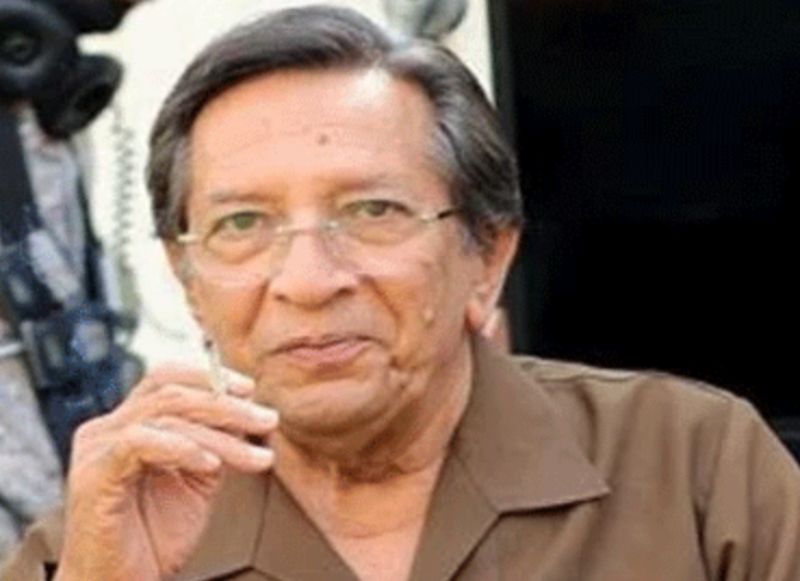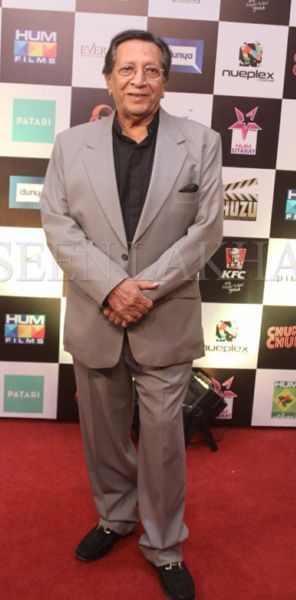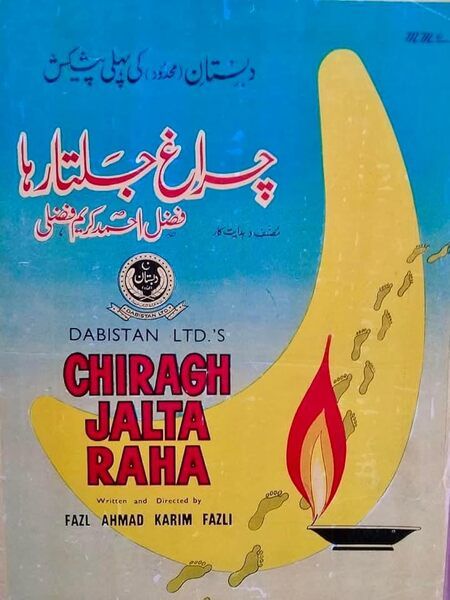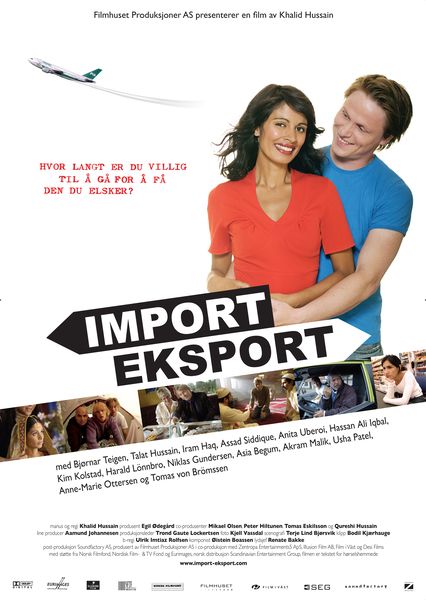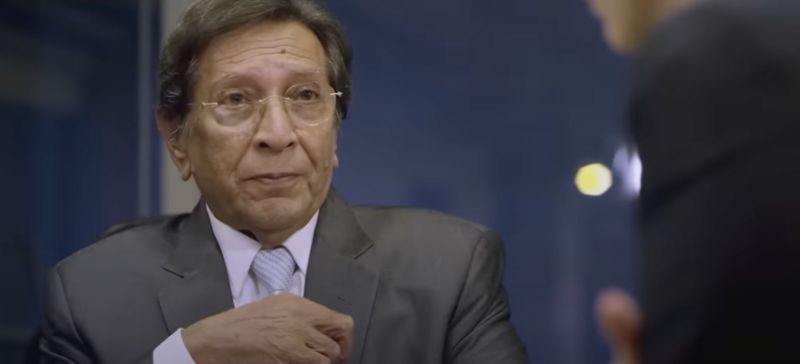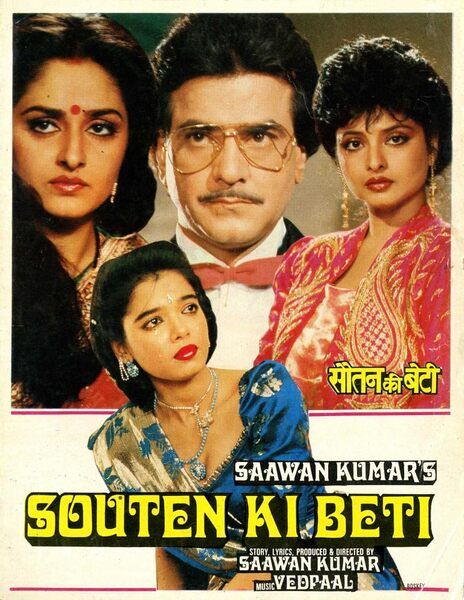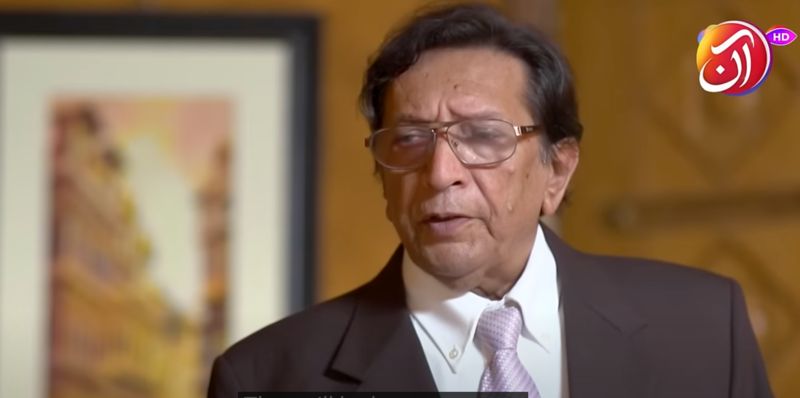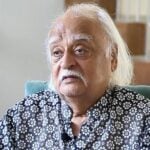Talat Hussain Age, Death, Wife, Children, Family, Biography
Quick Info→
Death Date: 26/05/2024
Age: 83 Years
Hometown: Karachi
| Bio/Wiki | |
|---|---|
| Full Name | Talat Hussain Warsi |
| Other Name | Pakistani Laurence Olivier |
| Profession | Actor |
| Career | |
| Debut | Theatre Play: 'The Thing' (1963) |
| Last Film | 'Project Ghazi (2017) |
| Awards, Honours | • 1982- Pride of Performance Award • 1985- Best Actor for 'Gumnan' (1983) at the National Film Awards • 1986- Best Supporting Actor in film Miss Bangkok (1986) at Nagar Awards • 2006- Best Supporting Actor in Norwegian film – Import Eksport (2005) at Amanda Award • 2009- Best TV Actor (Terrestrial) for 'Kabhi Aye Na Judai' at 8th Lux Style Awards • 2021- Sitara-i-Imtiaz (Star of Excellence) Award by the President of Pakistan |
| Personal Life | |
| Date of Birth | 18 September 1940 (Wednesday) |
| Birthplace | Delhi, British India |
| Date of Death | 26 May 2024 |
| Place of Death | Karachi, Pakistan |
| Age (at the time of death) | 83 Years |
| Death Cause | Prolonged Illness |
| Zodiac sign | Virgo |
| Nationality | Pakistan |
| Hometown | Karachi (After His Birth) |
| College/University | • Islamia College, Peshawar • London Academy of Music and Dramatic Art |
| Educational Qualification | • Bachelor of Arts from Islamia College • Degree in Film Acting from London Academy of Music and Dramatic Art |
| Religion | Islam |
| Social Media | |
| Relationships & More | |
| Marital Status (at the time of death) | Married |
| Family | |
| Wife/Spouse | Rakhshanda Hussain (Retired Professor of Psychology)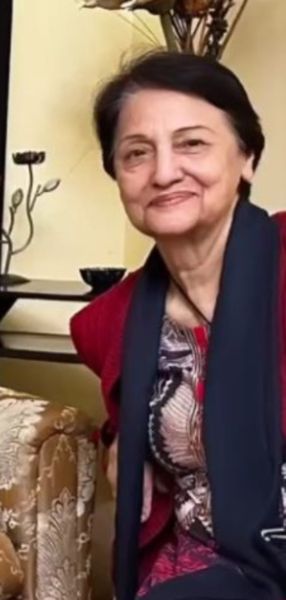 |
| Children | Son- (Filmmaker) Daughters- Tazeen Hussain (Actor, Teacher), Roohaina Faisal (Actor) 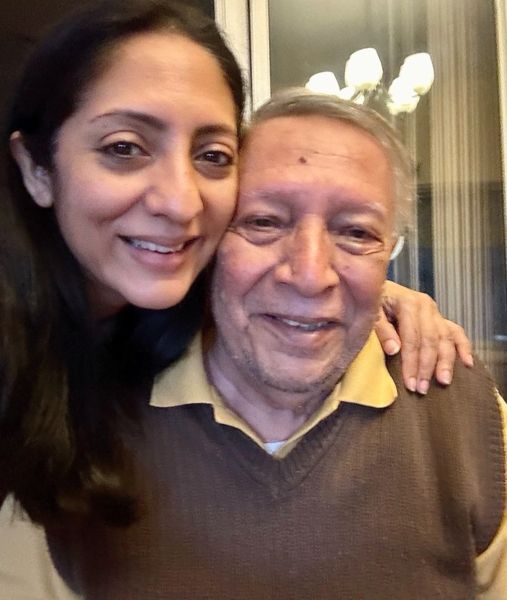 |
| Parents | Father- Altaf Hussain Warsi (Radio Presenter) (Deceased) Mother- Shaista Begum (Radio Presenter) (Deceased) |
| Favourites | |
| Actor | Dilip Kumar |
Some Lesser Known Facts About Talat Hussain
- Talat Hussain was very young when he and his family moved to Karachi, Pakistan after the India-Pakistan 1947 partition as her mother started working at Radio Pakistan, Karachi.
- His father used to develop Talat’s habit of reading and he used to make him read David Copperfield with him and that helped in Talat’s pronunciation and love for literature.
- Talat also used to love singing and his father bought him a harmonium but his mother didn’t allow it.
- He later started painting and even took part in a competition and got the first prize but a famous artist changed the jury’s verdict which broke his heart and he stopped painting.
- Talat was a good cricketer; however, his interest in acting was overpowering which is why he left playing cricket.
- Hussain’s love for acting developed due to film watching as he was given three rupees by his father to watch a film fortnightly.
- When Talat Hussain was 17 years old, his father asked him about what he wanted to become when he grew up and Talat told him that he wanted to do a Master’s in Literature and then become a professor and also a writer side by side.
- As his parents were Radio personalities and knew a lot of people from the entertainment industry as well, Talat Hussain was a little interested in entering the acting field; however, his mother never wanted him to get into acting as she thought he would become a brat.
- His mother wanted him to join the civil services.
- While he was studying in school, Talat was keen to join the Radio drama team and somehow convinced his mother to allow him to join the drama group of the radio.
- Before he was about to audition for his role in a Radio drama, Talat Hussain’s mother asked the producer of the Radio drama to fail Talat in his auditions to which the coach said no.
- The producer of the Radio drama told Talat’s mother that if she wanted to stop Talat then she had to prevent him from coming to the auditions which he somehow did and gave his auditions.
- Talat topped the auditions by having the highest marks which made him become part of the Radio drama.
- In 1962, Talat Hussain was cast in the Pakistani Urdu film titled ‘Chiragh Jalta Raha’ in which he played the character of Munna.
- In 1964, Talat Hussain formally entered the Radio industry for the radio drama titled ‘Mohammad Bin Qasim.’
- The work at Radio Pakistan was not enough to make ends meet which made Hussain get a job at Lyric Cinema where he used to be the gatekeeper.
- One day the owner of the Lyric Cinema noticed that Talat Hussain could speak in English fluently and that day Talat got his first promotion where he got shifted to the booking office from being just a gatekeeper at the Lyric Cinema.
- In 1972, Talat moved to London with his wife to pursue an acting course. To make ends meet, Talat used to work as a waiter and dishwasher in different cafes in London.
- He joined BBC and did supporting roles in theatre plays and the TV channel ATV after completing his courses in acting.
- In 1977, Talat along with his wife and newborn daughter came back to Pakistan to continue his acting career in his home country.
- In 1980, Talat Hussain was cast in the Pakistani television series titled ‘Bandish’ in which he played the character of Shahzad.
- In 1989, Talat Hussain was cast in the British television serial titled ‘Traffik’ which was all about the illegal drug trade. Talat Hussain played the character of the Pakistani drug lord Tariq Butt.
- In 2005, Talat Hussain was cast in the Norwegian film titled ‘Import Eksport’ in which he played the character of Allahditta.
- During the shoot of the Norwegian film titled ‘Import Eksport,’ Talat had to learn Norwegian to play the character of a desi Norwegian. He was quoted saying in an interview that
It took me two months to train myself in Norwegian and whenever I was delivering a line I had to keep the English translation in mind.” [1]The Express Tribune
- In 2010, Talat Hussain caught a skin allergy which later developed complications due to the wrong treatment by a local cosmetologist who gave him a bad dose of Cortisone which caused the condition to worsen. He couldn’t even sit and walk properly or even light up hiS cigarette. He was quoted saying in an interview that
There is a new breed of doctors in Defence (Karachi), who call themselves “skin specialists” but they are cosmetologists and not dermatologists. I should have been more careful and so should everyone else.” [2]The Express Tribune
- In 2014, Pakistani writer Huma Mir wrote a book titled ‘Yeh Hain Talat Hussain’ which was entirely based on Talat Hussain’s life journey.
- Talat Hussain was part of the faculty team of the National Academy of Performing Art (Napa) in Karachi where he used to teach acting to aspiring actors.
- Talat Hussain has been part of many Pakistani films and some of them are ‘Ek Say Barh Kar Ek’ (1987), ‘Jinnah – The Movie’ (1998), ‘Zar Gul’ (1997), ‘Actor in Law’ (2016), and ‘Project Ghazi (2017).
- He has been part of a few Indian Hindi films including ‘Bandgi’ (1972) and ‘Souten Ki Beti’ (1989).
- Talat Hussain has been part of numerous Pakistani TV series and some of which include ‘Eid Ka Jora’ (1985), ‘Thori Khushi Thora Gham’ (2002), ‘Meharun Nisa’ (2004), ‘Dolly Aunty Ka Dream Villa’ (2011), and ‘Na Tumhain Khabar Na Humien Khabar’ (2023).
- Talat Hussain has been part of various Pakistani theatre plays including ‘Andhera Ujala,’ ‘Raz o Niaz,’ ‘Lao Tau Qatalnama Mera,’ ‘Khalid Ki Khala,’ and ‘Jo Chalay To Jaan Sey Guzar Gayey.’
References/Sources:

